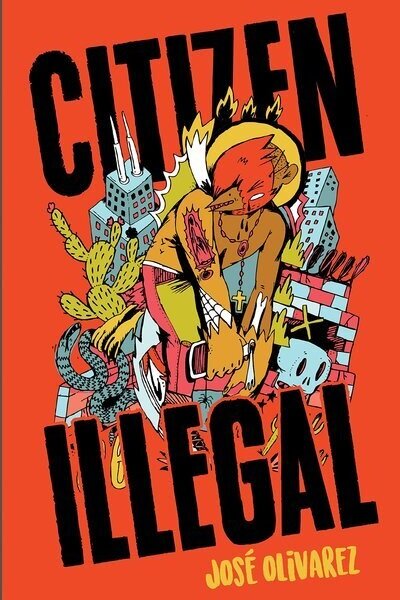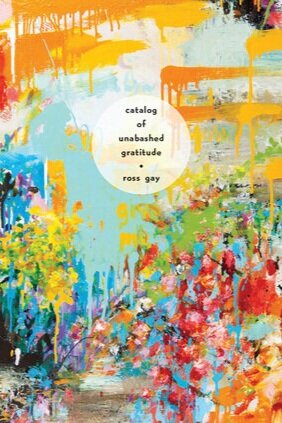Poetry for Healthcare Providers? A Pediatrician's Prescription.
Irène Mathieu
Full disclosure, I have a conflict of interest on this one – I am a poet, and I love poetry. But I realize that poetry can be intimidating, foreign, and opaque for many people. So before I launch into ten books that I think are essential for everyone (but especially for health care professionals), I’d like to make a case for the genre.
1. Poems are (generally) short. They’re a great way to engage with literature on a break during a busy workday, or just before you go to bed. And poetry books are typically small and easy to carry around.
2. Poems are weird. Because they use language in ways different from everyday speech, poems offer a chance to play outside our comfort zones, to experience language in a different way, and ultimately to become better listeners as a result.
3. Poems are vulnerable. Poems are more than a way to convey a story or message – they offer us a multidimensional sensory, emotional, and linguistic experience. Poetry therefore holds great potential to reinforce our compassion as healers.
4. Poems have no right answer. Forget what you were told in 11th-grade English class – there isn’t one right meaning to a poem, and there are as many interpretations as there are readers. The only rule in poetry is this: come with an open mind and heart.
This is only a start and not a comprehensive list by any means, but I’ve chosen the following books because their content is salient to health care professionals and because they’re books that offer something for every reader, whether you’re a long-time poetry reader or a skeptical novice. In no particular order, here’s the list.
The Virginia State Colony for Epileptics and Feebleminded by Molly McCully Brown
Molly McCully Brown grew up not far from the place whose name is the title of her first book. She carefully researched the chilling history of an institution into which anyone deemed “unfit” for mainstream society was committed over many decades in the mid-nineteenth century. These poems imagine the gruesome experiences of forced sterilization and solitary confinement that such “patients” would have been subjected to. But this book is also a heartfelt rendering of those whose voices were suppressed, and a reminder of what can unfold when eugenicist ideas are allowed to fester in medicine.
Citizen Illegal by José Olivarez
José Olivarez is one of those rare poets who can deliver serious news and also make you laugh out loud – in the same poem. Citizen Illegal is a composite of the experiences of a Mexican-American speaker navigating childhood and young adulthood in the contemporary U.S.A. These poems are many-layered songs full of double and triple entendres, and there’s even one extended poem, “Mexican Heaven,” that stretches throughout the book, reappearing like a chorus that will make you do a double take with each of its iterations.
Patient by Bettina Judd
Few people know that the so-called father of modern gynecology, J. Marion Sims, developed many of his now-common procedures and technologies on the bodies of enslaved women. Even fewer know those women’s names. In Patient, Bettina Judd imagines the lives and pain of those unwilling subjects in Sims’s nefarious science – Anarcha Westcott, Betsey Harris, and Lucy Zimmerman. Patient starts with these women’s stories, but it doesn’t end there. Instead, the book winds through many more stories about Black women’s bodies and interactions with the Western medical establishment, right up to the present day.
Kingdom Animalia by Aracelis Girmay
Aracelis Girmay is arguably one of the finest poets of our generation, and Kingdom Animalia exemplifies why. This book is all about the aching beauty of life’s impermanence, and the filling meal of grief that we all eventually share when what we love comes to an end. As she writes, “May the poems be / the little snail’s trail. / Everywhere I go, / every inch: quiet record / of the foot’s silver prayer.” A global meditation that spans dreams, borders, and generations, this is a book for every living being, but it’s an especially excellent choice for those of us who care for our fellow beings.
Unaccompanied by Javier Zamora
Javier Zamora’s book Unaccompanied would have made this list if the only poem it contained were “Doctor’s Office: First Week in this Country.” As a pediatrician caring for recently arrived children, I think about this poem nearly every week. But Unaccompanied contains so much more. The book examines a single immigration story from many perspectives, languages, and sides of the border(s). Zamora exquisitely captures the hope, trauma, and nostalgia of the remarkable journey one unaccompanied nine-year-old makes from his home country of El Salvador to the USA. This is essential reading.
Citizen by Claudia Rankine
In blocky paragraphs, the narrative poems that make up Citizen tell the story of racism as it is experienced on a daily basis. These aren’t the moments that make our national news – but, Rankine seems to imply, perhaps they should. Citizen asks, what does it mean to truly belong? If you’ve ever wondered what “microaggressions” are, or how the most quotidian moments of racism can build up in a person’s body, then Citizen will illustrate it for you, more clearly than does any other book I’ve read.
Catalog of Unabashed Gratitude by Ross Gay
In his third book Ross Gay takes his time. As the title promises, this collection is all about gratitude, open and luscious, no holds barred. In long, meandering verse, Gay meditates on the virtues of fruit trees and stolen naps on the couch. Equal parts poignant and delicious, Catalog is the perfect book to accompany one’s own gratitude practice, no matter how lapsed or distant or nonexistent it might feel right now. I promise these poems will help you find it.
Four Reincarnations by Max Ritvo
This is one of those rare books written by a person who knew that he was dying. Perhaps that is why these poems achieve such singular clarity. Ritvo writes, “When I was about to die / my body lit up / like when I leave my house / without my wallet.” What happens to love, to the future, and to the past, when one is facing imminent death? With tenderness, humor, and above all honesty, Max Ritvo tells the story of cancer and health, life and death, healing and dying, in a way that no poet – no writer, actually – I’ve ever read before.
Emergency Brake by Ruth Madievsky
Ruth Madievsky is a clinical pharmacist in addition to being a poet, and it shows. In her first collection, she writes wittily of the anxieties of her work and, more broadly, of being a young woman in the twenty-first century. Yes, there are pills in this book, and pharmaco-medical snark, but most importantly there are some of the most gorgeous metaphors I’ve ever read. “Night,” she writes, “is a story the hypothalamus tells itself.” The surprising imagery of these poems – by turns volatile, gorgeous, and absurd – keep the reader hooked until suddenly, somehow, Emergency Brake is over.
Deaf Republic by Ilya Kaminsky
Deaf Republic was one of the most highly anticipated poetry books of 2019, and every bit of the hype was deserved. In his second collection, Ilya Kaminsky imagines a country at war that responds to the violent death of a young deaf boy at the hands of a soldier by collectively “going deaf” and refusing to hear the commands of the military. Deaf Republic asks us to consider the meaning of collective action, complicity, and (dis)ability in violent society where force is the language of the government. At the same time, it illustrates how humans will keep doing what makes us human despite it all.
Irène Mathieu, MD is a poet and Assistant Professor of Pediatrics at the University of Virginia, where is affiliate faculty in the Center for Health Humanities and Ethics. She is the author of three poetry collections – Grand Marronage (Switchback Books, 2019), orogeny (Trembling Pillow Press, 2017), and the galaxy of origins (dancing girl press & studio, 2014) – as well as numerous poems and essays. Irène has received fellowships from the Fulbright Foundation, Callaloo Creative Writing Workshop, and the Virginia Center for the Creative Arts. Irène serves as a poetry book reviewer for Muzzle Magazine and an editor for the Journal of General Internal Medicine’s humanities section. For more information, visit irenemathieu.com or find her on Twitter (@gumbo_amando).












